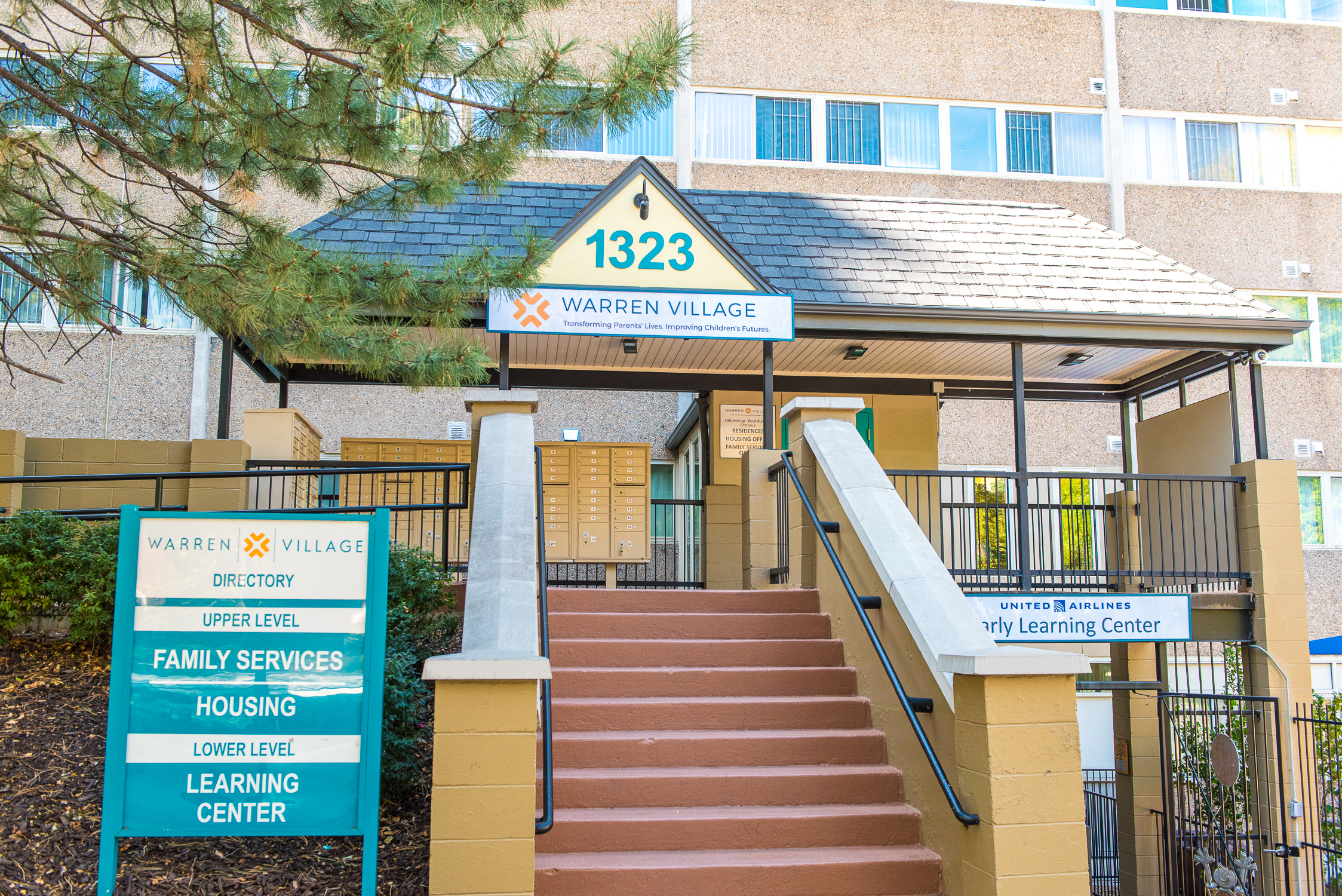Warren Village, a Denver-based organization focused on providing housing and helping low-income, single-parent families make the journey from poverty to self-sufficiency, plans to expand program services to a third facility on newly acquired land awarded through a highly competitive process managed by The Denver Housing Authority (DHA) and the City and County of Denver (CCD), funded by the DHA Delivers for Denver (D3) Bond Program.
Once constructed, the new Warren Village facilities at 1394 W. Alameda Ave. and 1373 W. Nevada Pl. in Denver would house and provide Two-Generation (2Gen) supportive services for single-parent families experiencing chronic housing instability or homelessness. The organization will leverage its 47-year history of providing safe and affordable housing, parent services and advocacy, early education/childcare and mental health services for parents and children.
Warren Village has impacted more than 8,200 children and parents and shown demonstrative outcomes. Last year, more than 86 percent of program participants graduated and achieved stabilized housing and more than 20 percent completed a workforce or college degree.
The campus will offer 74 affordable apartment homes, a high-quality early learning center, playgrounds, community gardens, and outdoor gathering spaces that will allow for connectivity to existing neighbors, including the Women’s Bean Project, with the goal of fostering both opportunities and community.
“This partnership will provide affordable and supportive housing options for all types of families in this neighborhood,” said David Nisivoccia, executive director of Denver Housing Authority, “And it will provide direct access to educational opportunities for children of all ages. Warren Village is a partner that will deliver on our promise to provide affordable and sustainable homes to our Denver families.”
The award begins a long process that will involve public, private and neighborhood partners, including Warren Village, DHA, and Urban Ventures, LLC. The first step will begin with listening to the community. Warren Village is honored to leverage Urban Ventures’ legacy of making Denver’s neighborhoods more resilient through equitable development and to work in concert with the DHA. The project hopes to leverage the strength of longstanding community partners, such as Mile High United Way, Mental Health Center of Denver, Community College of Denver, University of Colorado School of Medicine and DU’s Center for Housing and Homelessness Research, to offer services that meet families where they are. Core to these collective efforts is a unified mission to address the needs of single parents and their children who represent a tremendous lever for community change and thus are at the heart of this project.
The D3 Bond Program is a partnership between Denver Housing Authority and the City and County of Denver that aims to double the city’s Affordable Housing Fund (AHF) and enhance the pipeline for supportive and affordable housing in Denver. The D3 Bond Program established a land acquisition fund dedicated to expanding opportunities for housing developments that will serve Denver’s most vulnerable residents. Warren Village’s expansion will take place on land acquired through the D3 Bond Program.
“We are grateful to the taxpayers of Denver for making possible this next step in our journey to open a third affordable housing and supportive services facility in this first-of-its-kind partnership with the Denver Housing Authority,” said Ethan Hemming, president & CEO, Warren Village. “This is a huge win for hard-working single parents transitioning out of homelessness in our community.”
“Urban Ventures has a long-term relationship with Warren Village at Aria Denver with their First Step program,” said Susan Powers, president, Urban Ventures, LLC. “Affordable housing is increasingly a community-wide need, and we are very excited to be their development partner on this important new project to provide housing and wraparound services for single parents and their children.”
The development will be funded with Low Income Housing Tax Credits (LIHTC). Residential services for 74 homeless, single-parent families could begin as early as mid-2024.









